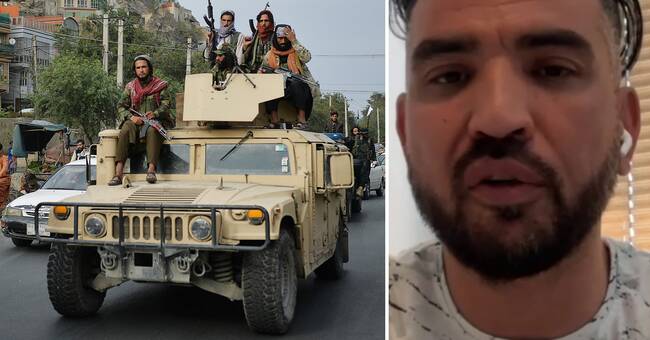Wadud Shabaz is one of the more than 1,100 people that Sweden has evacuated from Afghanistan.
He is Afghan and has previously worked for the United States building military communications with the Afghan military and police.
He describes the trip to Arlanda as very emotional.
- I became like a baby, I could not stop my tears.
Those he has contact with who are still there are constantly scared and worried about the future.
- Nobody knows what will happen now.
Empty promises - ending hopes
Wadud tells about family and friends who have problems getting food and can not withdraw money from ATMs.
He believes that the Taliban pretend to be good people and that their promises are empty.
- How can we trust what the Taliban say?
You can not play with your life.
He sees a bleak future for those who remained in Afghanistan.
- There is no hope left.
The only hope is Panjshir.
They (the Taliban) will never take over Panjshir.
The Panjshir Valley, which is known for being difficult to capture, is believed to be the only part of Afghanistan that the Taliban do not control.
The strategically favorable geographical location is an important reason for this, says Helené Lackenbauer, Afghanistan expert at the Swedish Defense Research Agency.
Resistance movement gathers in the mountains
The valley is surrounded by high mountains and the main entrance consists of a pass that is easy to defend.
Neither the Soviet Union nor the Taliban of the 1990s succeeded in conquering it.
Now, several different groups that form a resistance movement against the Taliban have gathered there.
The movement is led in part by the legendary warlord Ahmad Shah Massoud's son Ahmad Massoud.
- Many different tribes respect him as they respected his father, says Wadud.
Lacks international support
The other front figure, Amrullah Saleh, vice president of the now deposed government, sees himself as the country's rightful leader, according to Helené Lackenbauer.
But she believes that there is much that speaks against the resistance movement.
The movement is geographically cut off, which means that it cannot bring in necessities or equipment, Lackenbauer points out.
It also lacks international support and some members have no military training.
The Afghan expert describes the group as a mixture of ordinary people, old soldiers, intellectuals and politicians.
- At the moment, they have a very small chance, says Helené Lackenbauer.

